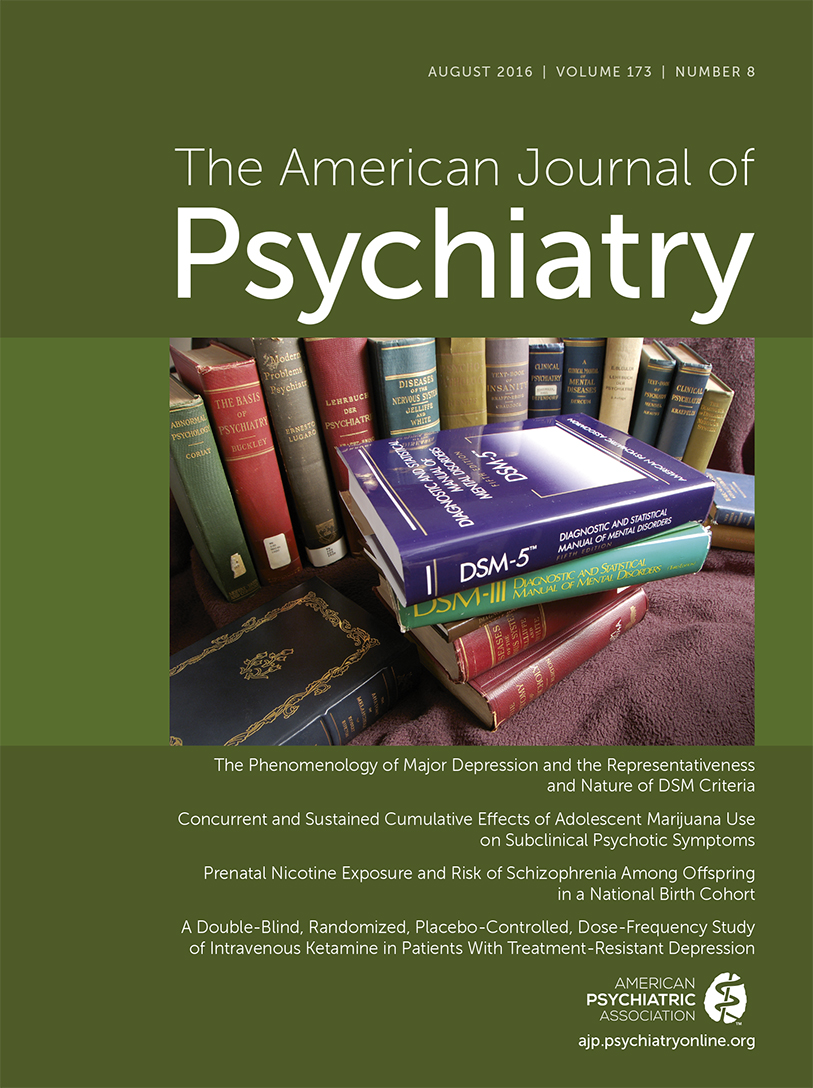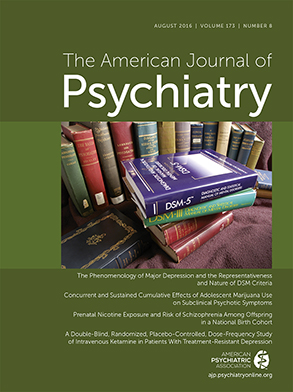Dr. Evelyn Bromet is distinguished professor of psychiatry and preventive medicine at Stony Brook University. While president of the American Psychopathological Association in 2013, Dr. Bromet organized its 103rd annual meeting in March 2013. The focus of this annual meeting was on the long-term course of illness, outcomes, and functioning of individuals suffering from different psychiatric disorders as well as areas of research that require further attention. This book is based on 18 presentations from worldwide experts that were given during this meeting. It is important to keep in mind that this meeting occurred before the release of DSM-5.
The book is divided into four parts. Each part includes illness-specific chapters as well as a final chapter addressing the topic in a more general way. The 17 chapters are followed by an epilogue by Dr. Robert B. Zipursky titled, “Reconsidering Outcome Priorities for Serious Mental Illnesses.”
Part one (“Findings From Long-Term Outcome Studies”) covers studies on the long-term outcomes of psychosis, bipolar disorder, depressive disorders, and substance use disorders. While summarizing the current literature, some of the chapters assume a level of familiarity with different long-term studies that may not be met by all readers. Each of the chapters, as well as a commentary by Dr. Ramin Mojtabai, emphasize the need for further studies, in particular for studies focusing on the effects of different interventions on long-term outcomes in mental illness.
Part two (“Ongoing Debates About Case Definitions: Diagnostic Boundary Issues”) addresses some diagnostic controversies that should be seen in the context of the introduction of DSM-5. The chapter by Dr. Peter Szatmari focuses on the diagnosis of Asperger’s syndrome (a diagnosis that was excluded from DSM-5), while the chapter by Dr. Gabrielle A. Carlson summarizes disruptive mood dysregulation disorder (a diagnosis that was added to DSM-5). The third chapter by Dr. Matthew A. Friedman focuses on posttraumatic stress disorder (PTSD) as a disorder that was reconceptualized in DSM-5. The final chapter by Dr. Roman Kotov focuses on shortcomings of current diagnostic classifications and looks at alternative classifications, including the Research Domain Criteria initiative as well as a novel classification focusing on internalizing and externalizing dimensions of mental illness.
Part three (“Differing Perspectives on the Concept of Recovery”) addresses the long-term outcomes and trajectories of illness in juvenile-onset depression, PTSD, and psychosis. Part three also includes a chapter written by Dr. Frederick J. Frese, a psychologist who was diagnosed with psychosis, who adds a personal perspective on being both a patient with a mental illness as well as a working psychologist. The final chapter by Dr. Edye Schwartz and Dr. Lisa Dixon describes a recovery-oriented mental health service.
Part four (“The Need for Continued Long-Term Outcomes Research”) has a chapter on nonsuicidal self-injury, which is described as a condition for which very little information is available on long-term outcomes. The other two chapters focus on genetics and MRI as research tools to further our understanding of long-term outcomes in psychiatric disorders.
This book brings together a group of experts who have studied different aspects of long-term outcomes in psychiatric disorders. As such, this book is an excellent introduction to this topic. This book also clarifies how little is known about long-term outcomes in psychiatric disorders and how much more research is needed. Several chapters emphasize the lack of studies on the effects of different interventions on long-term outcomes and on trajectories of psychiatric disorders. This book will be helpful to researchers, clinicians, and students who want to increase their knowledge about long-term outcomes in psychiatric disorders.
This book focuses only on select psychiatric disorders. Other psychiatric disorders (e.g., anxiety disorders, personality disorders, and attention deficit hyperactivity disorder), while prevalent in the general population, are not included in this book. As this book is based on presentations at the annual meeting of the American Psychopathological Association, the different chapters are not always connected to one another. The four separate parts of this book offer some thematic cohesion, but a stronger focus on structure might have helped the nonexpert reader become more familiar with the current knowledge and shortcomings of outcomes research.
The biggest limitation is the timing of this book. The 103rd annual meeting of the American Psychopathological Association occurred just before the release of DSM-5. This book reflects a widespread uncertainty prior to the launch of DSM-5. Three years later, we are all much more familiar with DSM-5. This book would have proven even more helpful if the increased familiarity with DSM-5 were reflected in its chapters.


